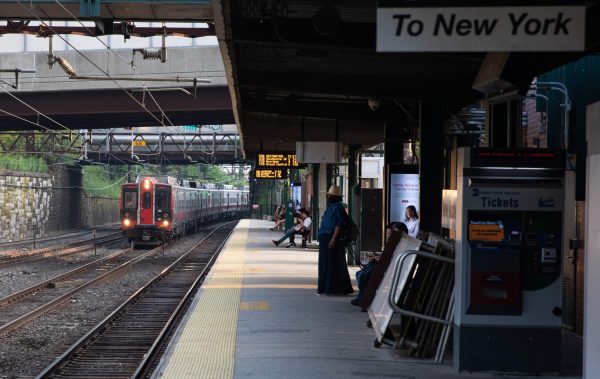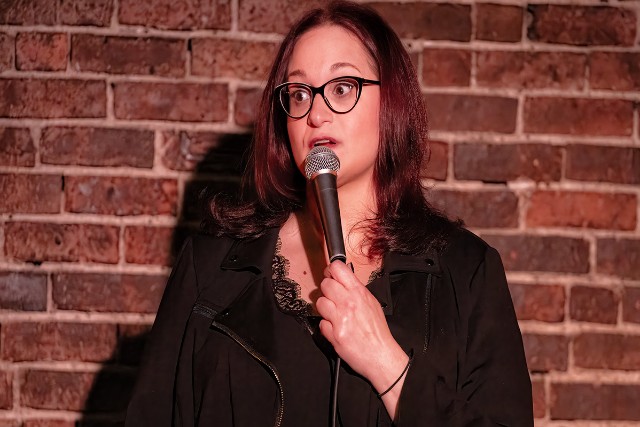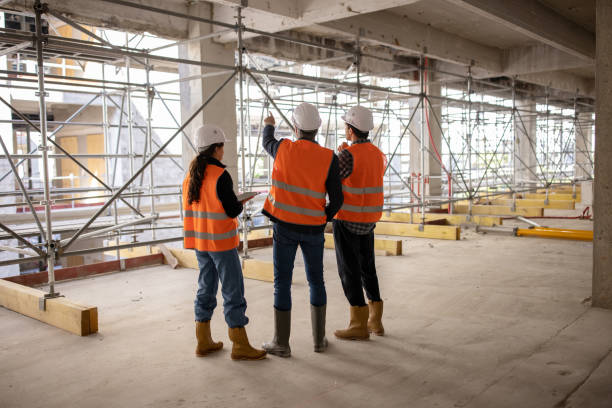Bronx residents and elected officials are weighing in on the proposed new Metro-North stations coming to the Parkchester/Van Nest, Hunts Point, Morris Park and Co-Op City neighborhoods. While the massive project has gained broad support, not all are on board with the zoning changes likely to accompany it.
The Metro-North proposal would bring one-seat rides from the East Bronx to Penn Station, Westchester County and Connecticut and would provide more open pedestrian spaces, including a plaza at Morris Park. The project has already been in the works for five years and first broke ground in 2022.
But the proposal involves much more than train stations. According to the Department of City Planning (DCP), it would also add about 7,500 new housing units near the Parkchester/Van Nest and Morris Park stations — about one-quarter of which would be designated as permanently affordable housing — along with 2.5 million square feet of commercial space. The plan would also bring an estimated 10,000 jobs across all four new stations.
However, with the proposed changes come rezoning recommendations that some neighborhoods are pushing back against.
Community Board 10, which includes Co-Op City, voted against the Metro-North project, citing “concerns about affordability, building height and the lack of homeownership opportunities,” said District Manager Matt Cruz in a statement to the Bronx Times.
“The City of New York must include deeper affordability and should examine pathways toward affordable homeownership opportunities before this rezoning reaches the New York City Council,” Cruz said.
Although community board votes are only advisory, their opinions hold at least some sway with elected representatives and city agencies — especially as the city has touted the entire project as compatible with the unique character of each neighborhood.
Community boards have their say
The Bronx Times examined the recommendations sent to the city by the community boards and found that the affordability of the proposed housing was a common concern, along with parking and infrastructure improvements.
CB 10 — the only board to reject the plan — wants to see an affordable homeownership option (condo or co-op) and to limit building height to five to seven stories. In addition, the board wants parking and side yard requirements, more school seats, and parking lots to accommodate commuters and increased bus service. The board also expressed concerns about having more people in the area without increased fire and police resources.
CB 9, on the other hand, told the city it favors increased density to create even more affordable housing in their area — and like CB 10, the board wants homeownership options. The board also asked DCP to encourage developers to work more closely with the boards and lobbied for more parking and street lights. Ultimately, the board voted unanimously to approve the plan with conditions.
CB 11 voted to approve, although the vote of 25 to 5 was not unanimous. In a letter to city agencies, Board Chair Bernadette Ferrara recommended a zoning cap of 6RA for the housing planned near the Parkchester/Van Nest and Morris Park stations. This limit would restrict building height for housing near the stations, whereas the city has proposed a mix of zoning districts to increase housing density in the area.
Ferrara said the limit would preserve neighborhood character and prevent overstraining the infrastructure — with parking availability as a top concern. She also called for protections to ensure existing small businesses are not displaced or harmed.
DCP told the Bronx Times it is committed to continued work with the community as the project remains under public review.
‘Devil in the details’
The proposed new housing would be located at the Morris Park and Parkchester/Van Nest stations, so zoning changes subject to the approximately seven-month ULURP process are proposed in those areas.
Residential zoning changes at Hunts Point and Co-Op City are not proposed, but DCP officials said capital improvements would still come to those areas.
The Metro-North project has been years in the making and involves several city, state and federal agencies, including the Department of Transportation, Department of City Planning, Amtrak and MTA.
It also complements the principles of City of Yes for Housing Opportunity — which will be presented to community boards soon — and City of Yes for Economic Opportunity, which is headed for a City Council vote. Both of these initiatives reflect major zoning changes aimed at opening up more housing and small business opportunities.
The Metro-North study first launched in 2018 and has since progressed through stages of input from East Bronx residents and other stakeholders. The land use recommendations started the public review process in January, and community boards recently gave their official votes on the projects.
Now, Borough President Vanessa Gibson is gathering input ahead of her recommendation — which should come soon, as she has 30 days following the boards’ votes to issue her own advisory vote.
Following Gibson’s recommendation, the City Planning Commission will vote on the plan before it is sent to the City Council for a binding vote and the mayor — which, according to DCP, is expected by the end of summer. The new stations are anticipated to open in 2027.
Council Members Amanda Farías, Rafael Salamanca Jr., Kevin Riley and Kristy Marmorato, who represent the neighborhoods impacted by the new stations, have thus far expressed support for the project in general while acknowledging some concerns about ensuring the neighborhoods are set up to support the increased activity that comes with new development.
Gibson is taking all this into account as the city awaits her recommendation. At an April 16 public hearing at Borough Hall, Gibson said the project would “reshape transit equity in our borough” but added that as with every project of this magnitude, “The devil is always in the details.”
She emphasized the need for major capital improvements to support the new stations — especially early childhood and public school seats, which she called a “non-negotiable.” Gibson also said that the neighborhoods need more community centers, pathways to meaningful careers, and ways to mitigate increased noise and traffic.
Gibson said that while she understood the city could not provide an exact dollar amount — DCP said it is still in the process of identifying all necessary capital improvements — she asked for assurance that these needs would be met.
While Gibson was enthusiastic about the potential of the Metro-North project, “We need to take care of home first,” she said.
This story was updated at 9:00 a.m. on April 24 to correct Matt Cruz’s title as district manager, not chairperson, of Community Board 10
Reach Emily Swanson at eswanson@schnepsmedia.com or (646) 717-0015. For more coverage, follow us on Twitter, Facebook and Instagram @bronxtimes




















